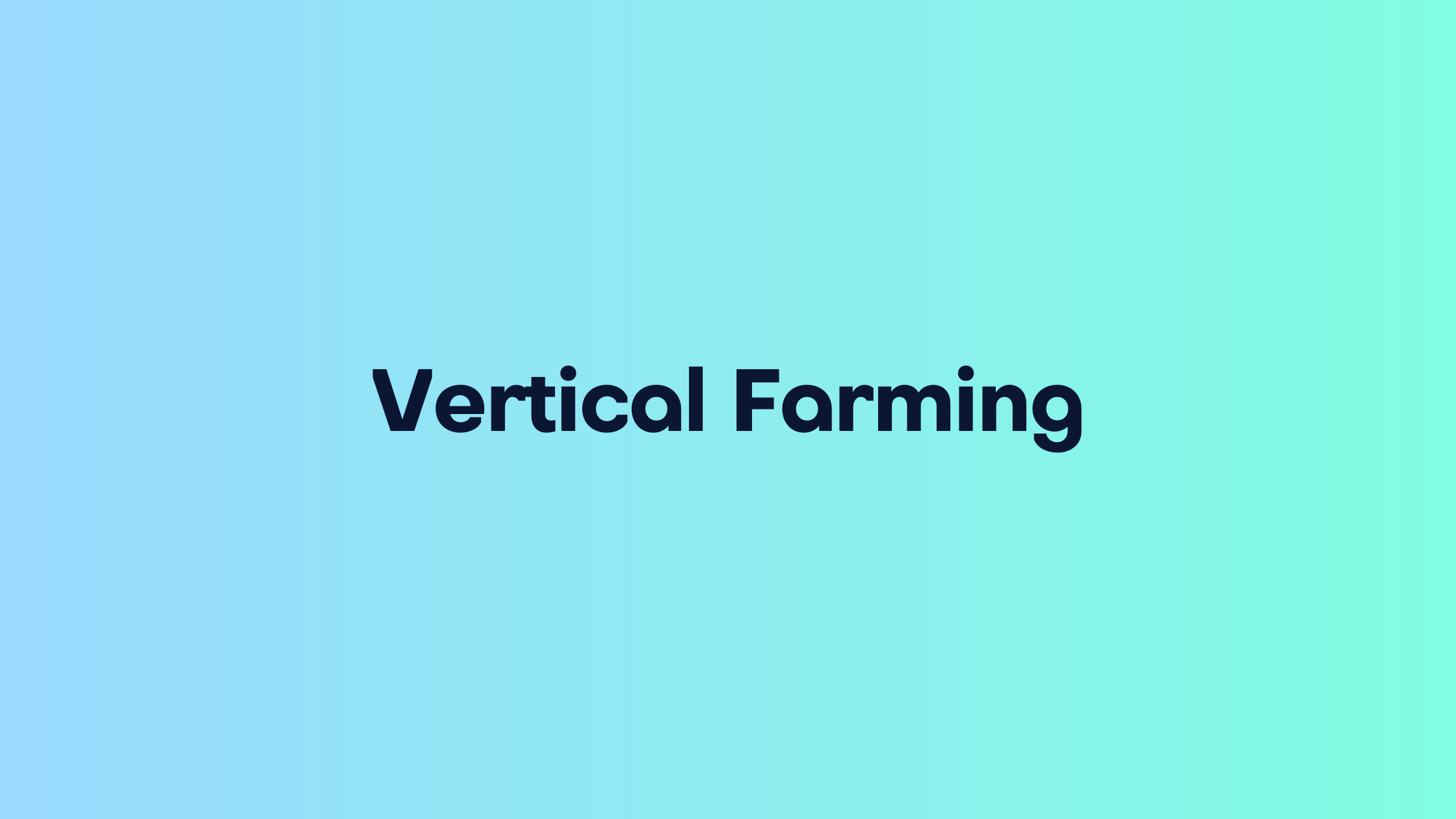Vertical farming is leading a revolution in agriculture by offering sustainable, efficient, and space-saving solutions to grow crops in urban settings.
This innovative method uses vertical layers and advanced technologies to maximize yield, reduce water usage, and eliminate the need for harmful pesticides.
Here's an in-depth look at some of the innovative startups pushing the boundaries of indoor and vertical farming.
Plenty
- Location: San Francisco, California
- Highlight: AI-powered farming to grow fresh produce
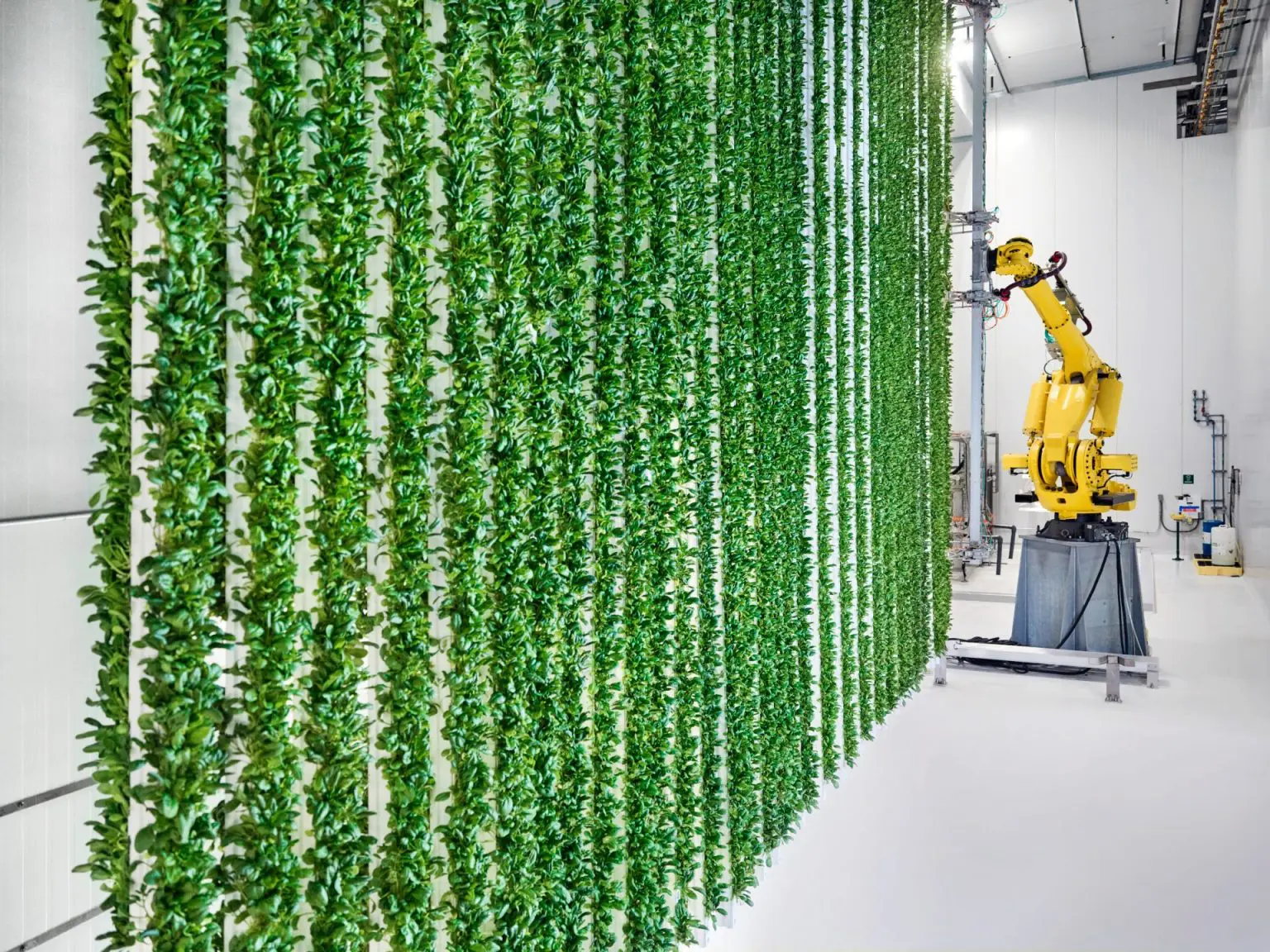
Plenty is at the forefront of modern agriculture, combining artificial intelligence, robotics, and controlled-environment farming to grow fresh produce with unparalleled efficiency.
Their focus on pesticide-free and nutrient-rich crops has garnered global recognition.
Plenty’s vertical farms use 1% of the land and 5% of the water required by traditional farming, making them a model of resource efficiency.
Notably, they are scaling their operations to supply grocery chains and even experimenting with growing non-leafy greens like strawberries.
AppHarvest
- Location: Morehead, Kentucky
- Highlight: High-tech greenhouse farming focusing on eco-friendly practices and food accessibility.
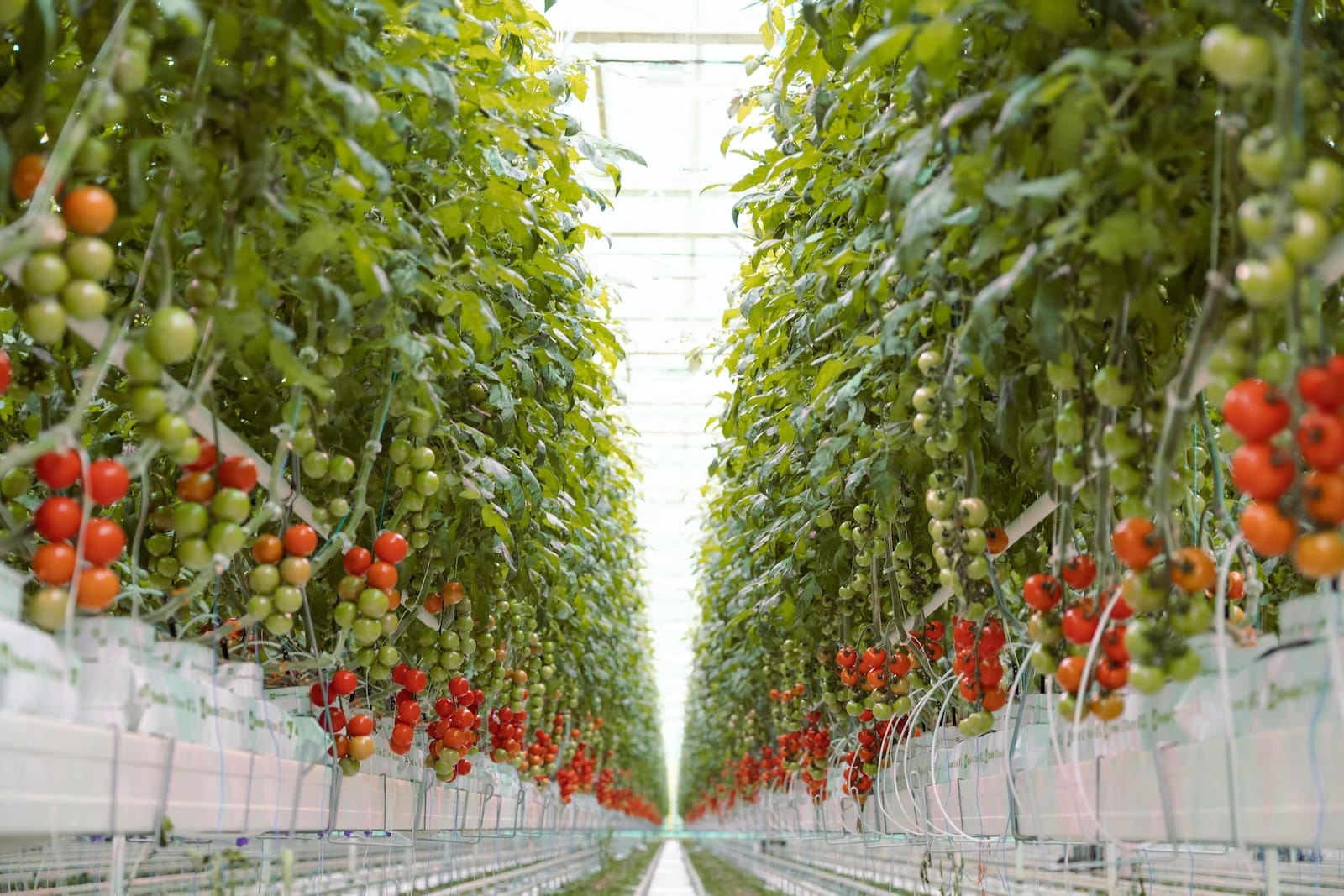
AppHarvest is redefining sustainable agriculture with its high-tech greenhouse facilities based in Morehead, Kentucky. By combining cutting-edge technology with environmentally responsible practices, AppHarvest aims to create a more resilient and equitable food system.
By leveraging advanced water recycling systems, AppHarvest uses 90% less water than traditional farming, with most of their supply sourced from rainfall.
This water-efficient approach not only conserves natural resources but also eliminates the need for harmful pesticides, ensuring safer, cleaner produce.
AppHarvest is deeply committed to food accessibility and community impact. Located in the Appalachian region, the company generates jobs and supports local economies while addressing food insecurity by producing nutritious, affordable fruits and vegetables.
Their flagship crops include tomatoes, berries, and leafy greens, which are distributed to grocery stores and restaurants across the U.S.
AeroFarms
- Location: Danville, Virginia
- Highlight: Cutting-edge aeroponic technology for resource efficiency
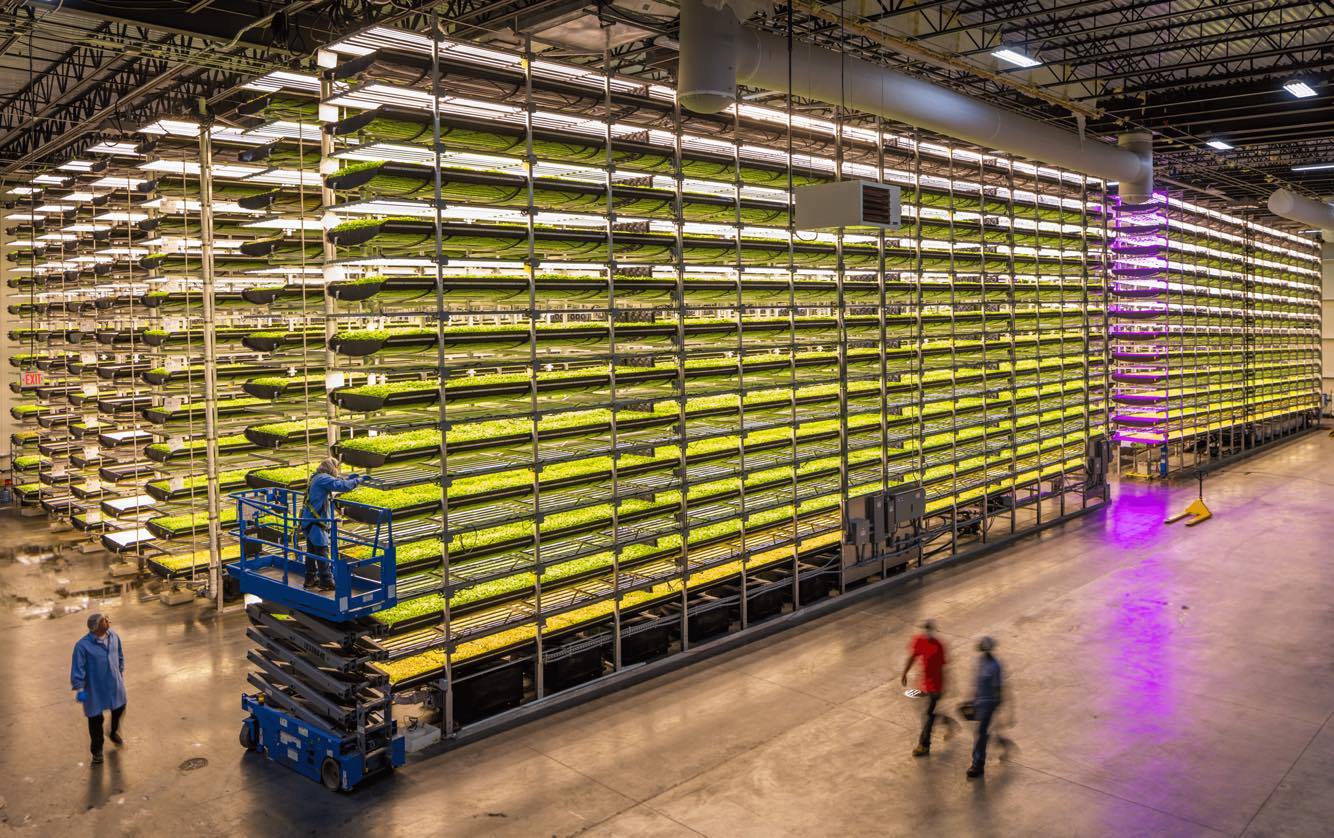
AeroFarms is leading the use of aeroponics, a method where plants grow without soil and receive nutrients via a fine mist sprayed directly onto their roots.
Their mission is simple yet transformative: to grow flavorful, nutrient-rich greens while addressing the inefficiencies of traditional agriculture.
At the heart of AeroFarms is the FlavorSpectrum™, a philosophy that celebrates the diverse taste profiles of their microgreens.
Each color in the FlavorSpectrum™ reflects a unique flavor note, with cooler blue hues symbolizing sweet and mellow tones and vibrant reds representing bold and zesty flavors.
This innovative approach ensures that AeroFarms microgreens offer not just freshness, but also an unparalleled culinary experience.
Freight Farms
- Location: Boston, Massachusetts
- Highlight: Hydroponic, vertical farming solutions inside shipping containers
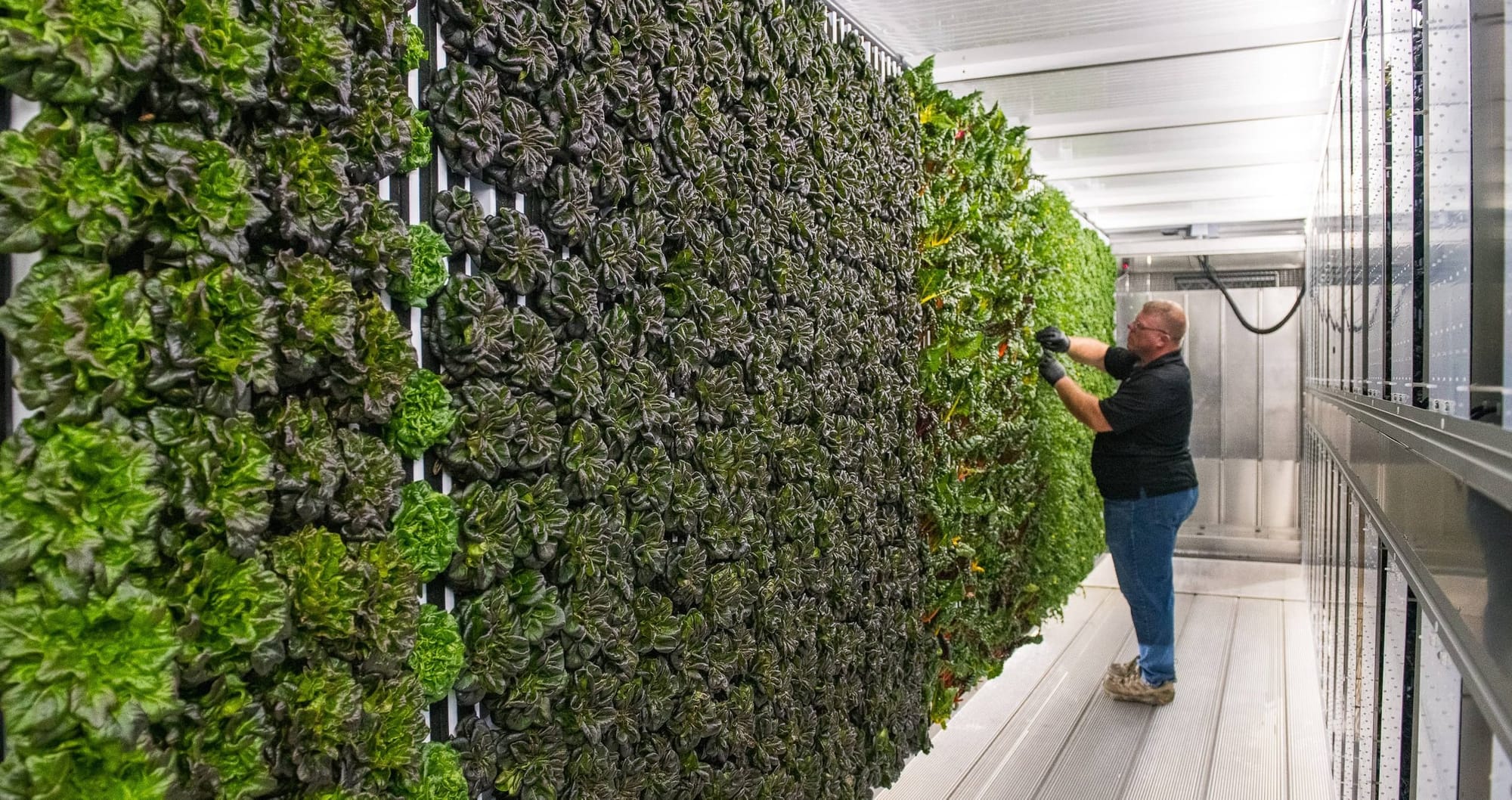
Freight Farms is a Boston-based agriculture technology company pioneering the use of shipping containers to create modular, hydroponic farms.
Their flagship product, the Greenery™, is a commercial-scale vertical farm built inside a 40-foot shipping container, enabling year-round cultivation of a wide variety of crops, including lettuces, leafy greens, herbs, and edible flowers, in just 320 square feet.
Each Greenery™ is equipped with advanced climate controls, LED lighting, and a closed-loop hydroponic system, allowing precise management of growing conditions and efficient resource use.
This design enables the production of 2 to 6 tons of produce annually, using significantly less water and land compared to traditional farming methods.
To support farm operations, Freight Farms developed Farmhand®, a farm automation software that offers remote monitoring and control, data analytics, and crop planning capabilities. This integration empowers farmers to optimize their operations and maintain consistent crop quality.
Bowery Farming
- Location: New York City, New York
- Highlight: Data-driven urban farms for hyper-local food
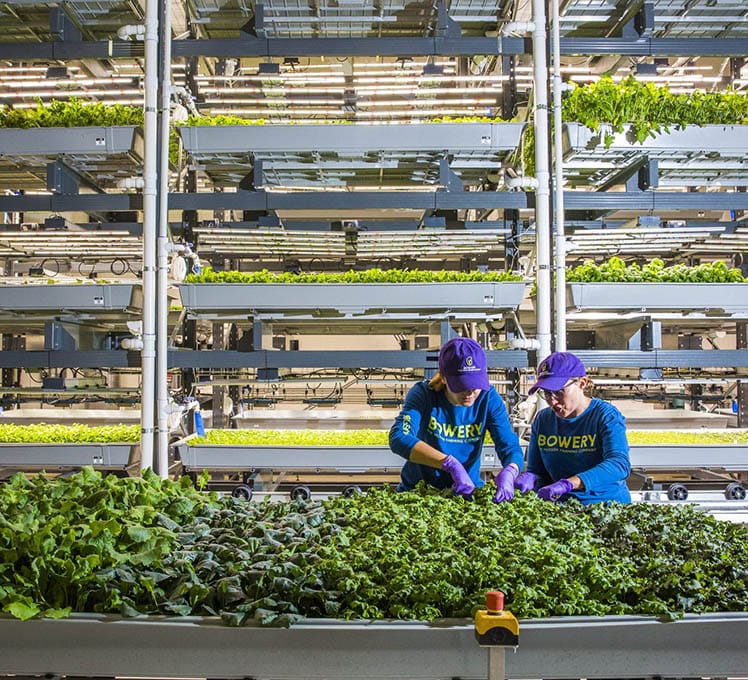
At Bowery Farming, the mission is as bold as the flavors they cultivate: to secure the future of food with innovative, sustainable, and accessible farming solutions.
Bowery’s vision centers around producing absurdly flavorful, pesticide-free, and pollutant-free produce using fewer resources while expanding access to fresh, nutritious food.
Bowery builds and operates smart indoor vertical farms just outside cities, making their produce hyper-local and incredibly fresh.
The Bowery technology powers their smart farms, enabling precise control over growing conditions while ensuring every crop meets their high standards for flavor, freshness, and safety.
The system collects and analyzes data to continuously optimize farm performance, creating a simplified and more agile food supply chain.
Bowery isn’t just growing crops—they’re cultivating a future where nutritious food is accessible to everyone.
Their dream is a world where high-tech farms do less harm to the environment and every city has a smart farm in its backyard.
With five farms currently in operation, including a state-of-the-art R&D and innovation facility, Bowery is making that dream a reality.
Gotham Greens
- Location: Brooklyn, New York
- Highlight: Rooftop greenhouses for urban sustainability
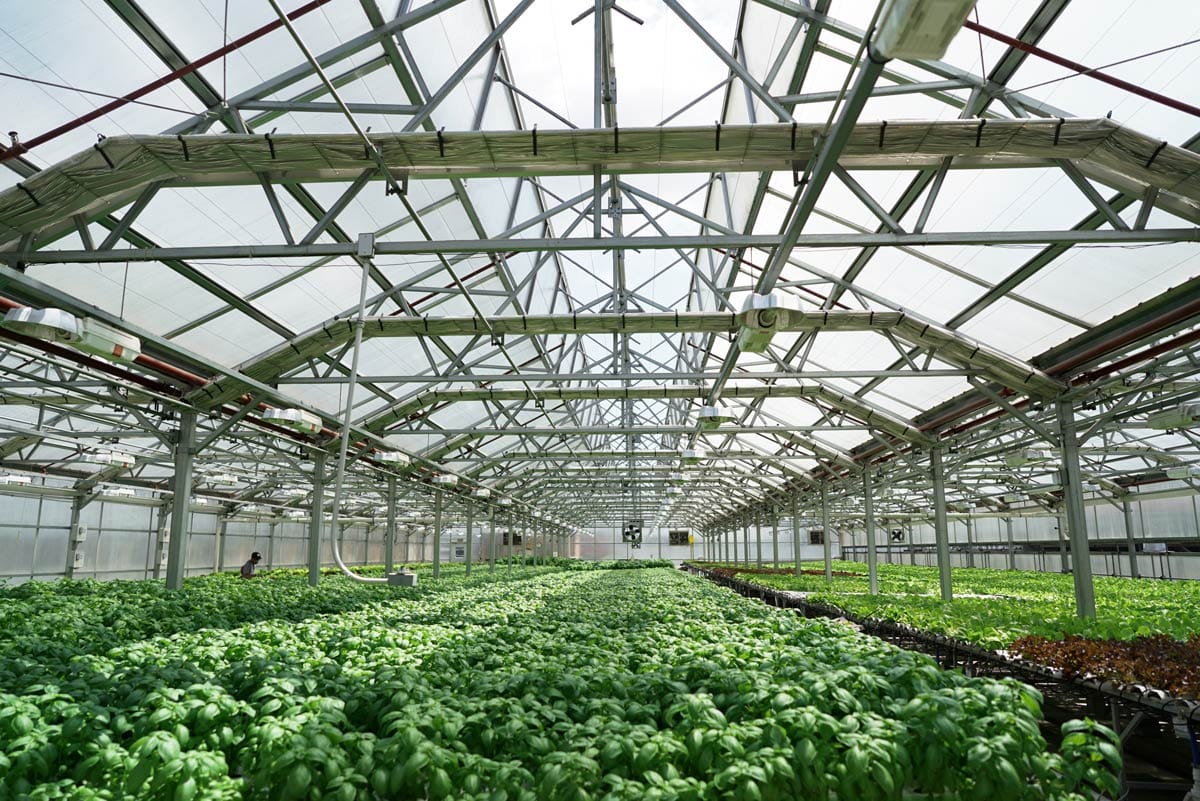
Gotham Greens has transformed urban rooftops into thriving hubs of agricultural innovation. Their hydroponic greenhouses produce fresh, high-quality greens while optimizing water use and minimizing waste.
Gotham Greens focuses on community impact, partnering with local food banks and educational programs to promote food security and sustainable farming practices.
Their farms are strategically located in cities across the U.S., including Chicago, Baltimore, and Denver, ensuring access to fresh produce in dense urban areas.
80 Acres Farms
- Location: Hamilton, Ohio
- Highlight: Fully automated farms powered by renewable energy
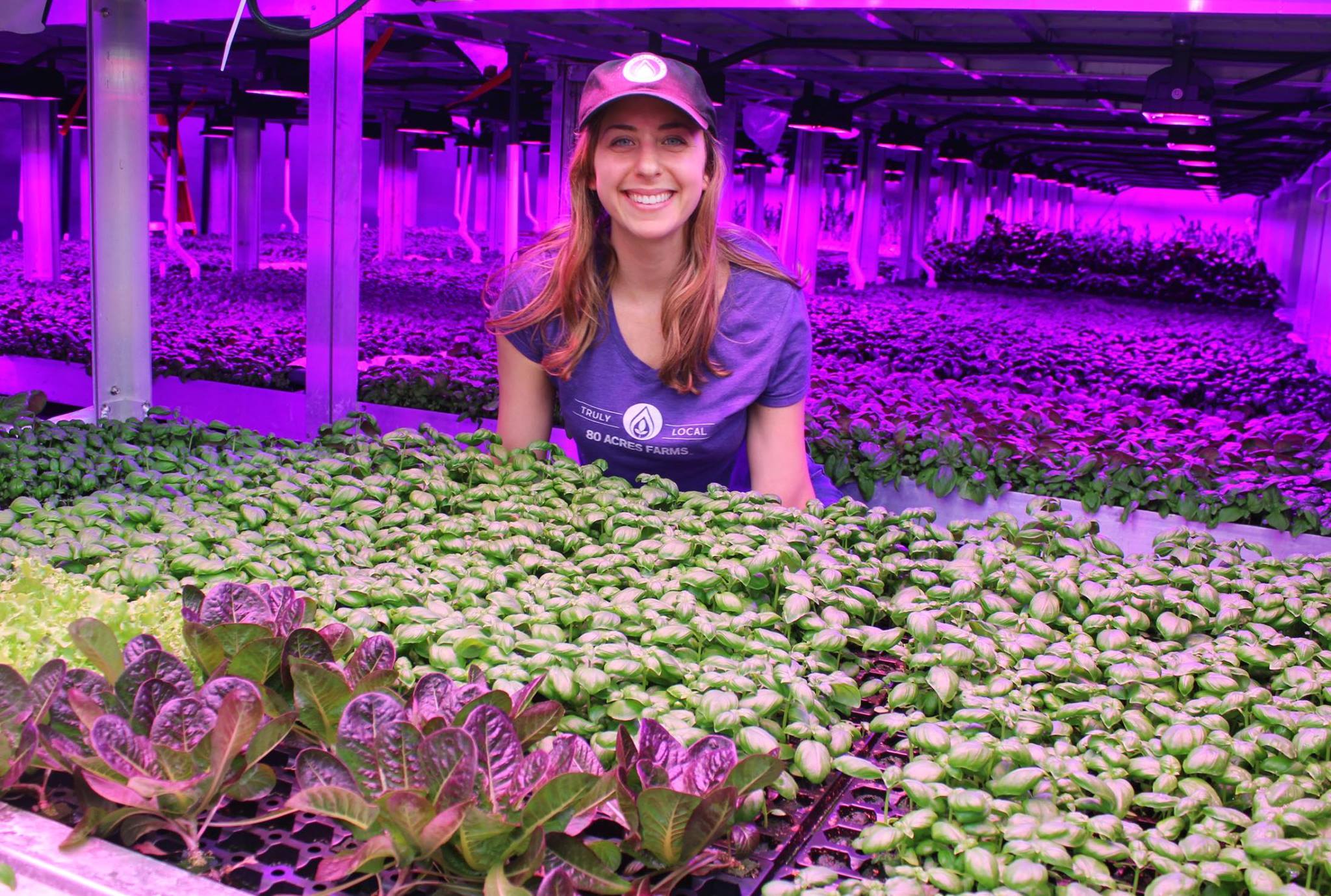
80 Acres Farms is setting a new standard for automation in vertical farming. Their indoor farms are equipped with robotic systems that handle planting, harvesting, and monitoring.
By utilizing renewable energy sources and water-efficient hydroponic systems, they ensure that their operations are both environmentally friendly and cost-effective. 80 Acres Farms supplies grocery stores, restaurants, and schools with fresh, nutrient-dense produce year-round.
BrightFarms
- Location: Irvington, New York
- Highlight: Greenhouse farming for a localized food supply chain
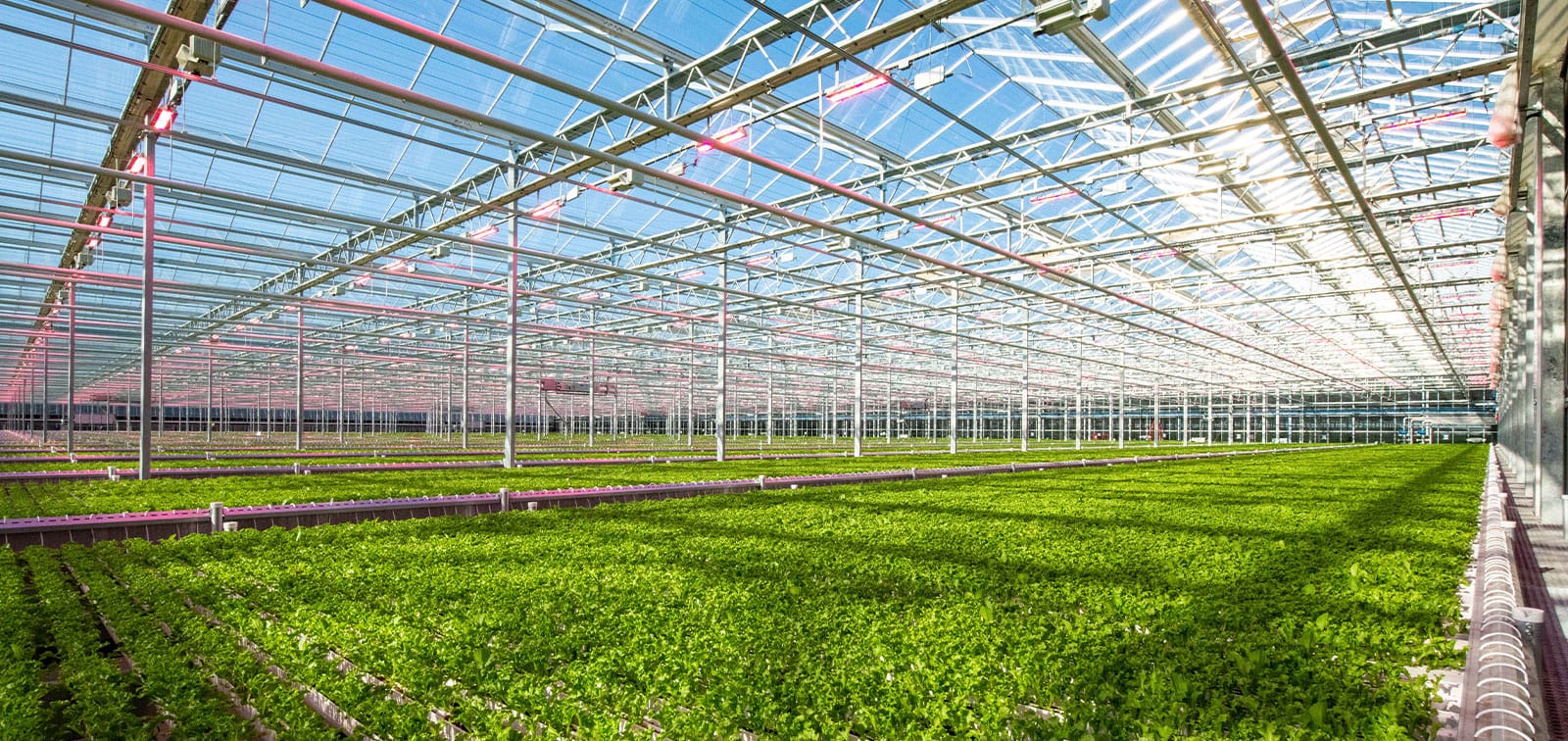
BrightFarms bridges the gap between traditional farming and vertical farming by combining hydroponic technology with greenhouse systems.
Their farms, located near urban centers, grow pesticide-free greens using significantly less water than field farming.
By eliminating long-haul transportation, BrightFarms reduces the carbon footprint of food production while delivering fresher produce. They also work closely with retailers, fostering a direct-to-store model that keeps food miles to a minimum.
BrightFarms’ greenhouse farms are designed with sustainability in mind, using significantly less energy, land, and water compared to conventional agriculture.
Their commitment to the environment extends to their growing practices, which are entirely pesticide-free. By employing local farmers, BrightFarms supports community development while making high-quality, fresh produce accessible to all.
Eden Green Technology
- Location: Cleburne, Texas
- Highlight: Sustainable vertical farming technology
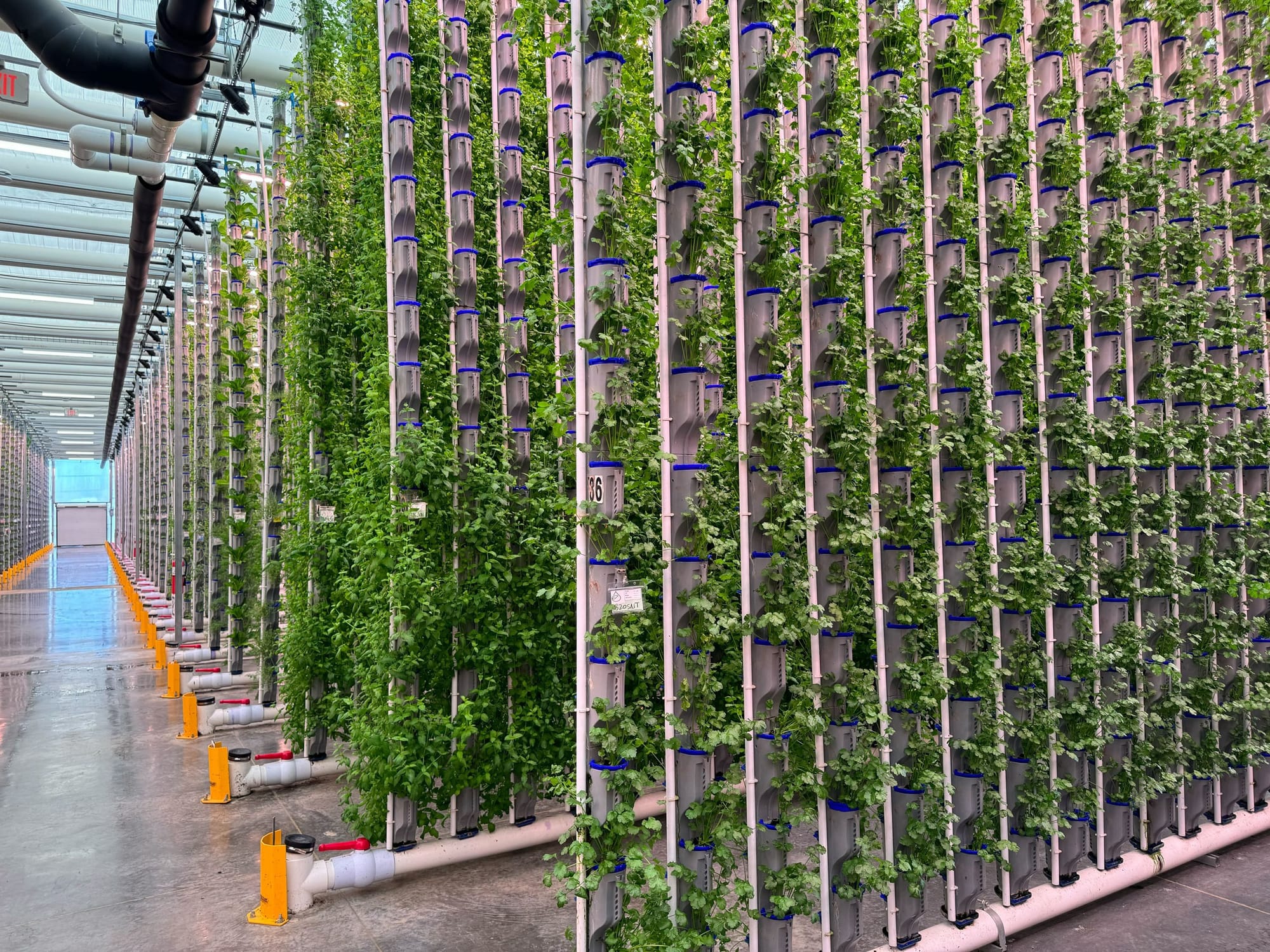
Eden Green is transforming sustainable agriculture with its innovative vertical greenhouse systems. Using advanced hydroponic methods and controlled environment agriculture (CEA), Eden Green enables the year-round cultivation of over 200 varieties of produce, including leafy greens, herbs, and vegetables.
Their patented microclimate system creates optimal growing conditions for each plant, resulting in faster growth cycles and higher-quality harvests while conserving resources.
Eden Green's hydroponic approach uses 98% less water and 99% less land compared to traditional farming, addressing critical challenges in resource conservation and environmental sustainability.
Beyond innovation, Eden Green is deeply committed to community impact, donating up to 10% of its daily harvests to local nonprofits fighting hunger and homelessness.
With plans to build 20 greenhouses across the U.S. in the coming years, Eden Green is scaling commercial production to meet rising demand and making fresh, locally grown produce more accessible and affordable.
Vertical Harvest
- Location: Jackson, Wyoming
- Highlight: Sustainable urban agriculture and hydroponic technology
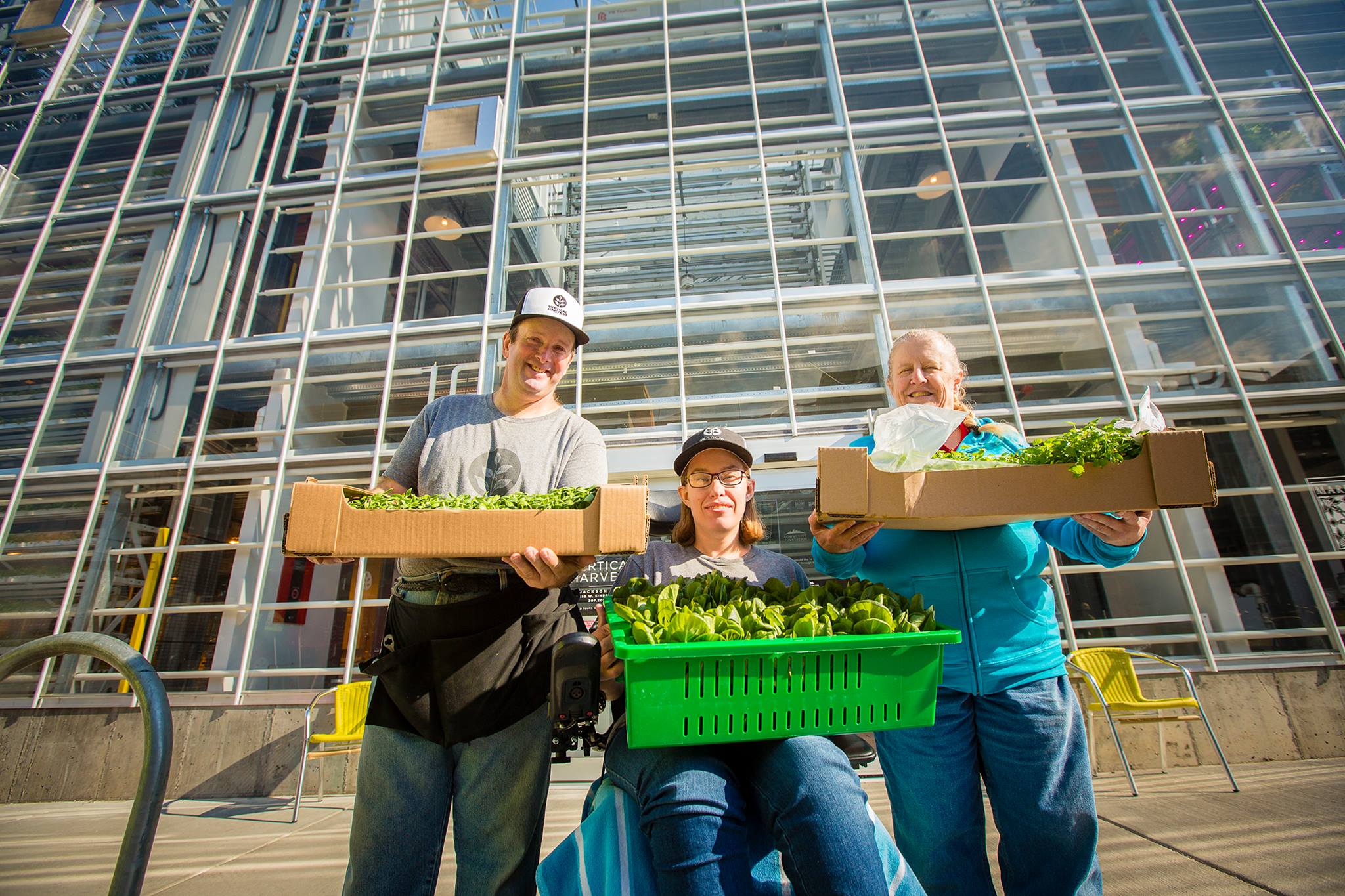
Vertical Harvest is at the forefront of sustainable urban agriculture, combining innovative hydroponic technology with a strong commitment to social impact.
Their multi-story greenhouses are designed to maximize space efficiency, producing an abundance of fresh, nutrient-dense produce year-round on a fraction of the land required for traditional farming.
Located in underserved urban areas, these controlled-environment farms not only supply local communities with healthy food but also create meaningful employment opportunities for individuals often excluded from the workforce, such as those with developmental disabilities.
Vertical Harvest launched the first vertical greenhouse in the United States, growing the equivalent of 10 acres of traditional farmland on just 1/10 of an acre.
Their success has inspired expansion efforts, including a new 52,000-square-foot farm in Westbrook, Maine, set to open in 2025. This facility is projected to produce 2.5 million pounds of fresh greens annually while providing up to 50 full-time jobs.
Vertical Harvest’s “Grow Well” employment model is central to its mission, addressing the challenges faced by marginalized communities, including individuals with disabilities, immigrants, and formerly incarcerated citizens.
Their innovative approach to farming and hiring demonstrates how agriculture can simultaneously tackle food insecurity, climate resilience, and economic inclusivity.
With plans to expand their network of farms across the United States, Vertical Harvest continues to lead the way in reimagining local food systems and empowering communities through sustainable agriculture and social equity.
Conclusion
These startups are at the forefront of a sustainable agricultural revolution, each bringing unique technologies and strategies to the table.
By harnessing the power of vertical farming, they are addressing pressing global challenges like climate change, urbanization, and food security. The future of agriculture is vertical, and these companies are lighting the way.





